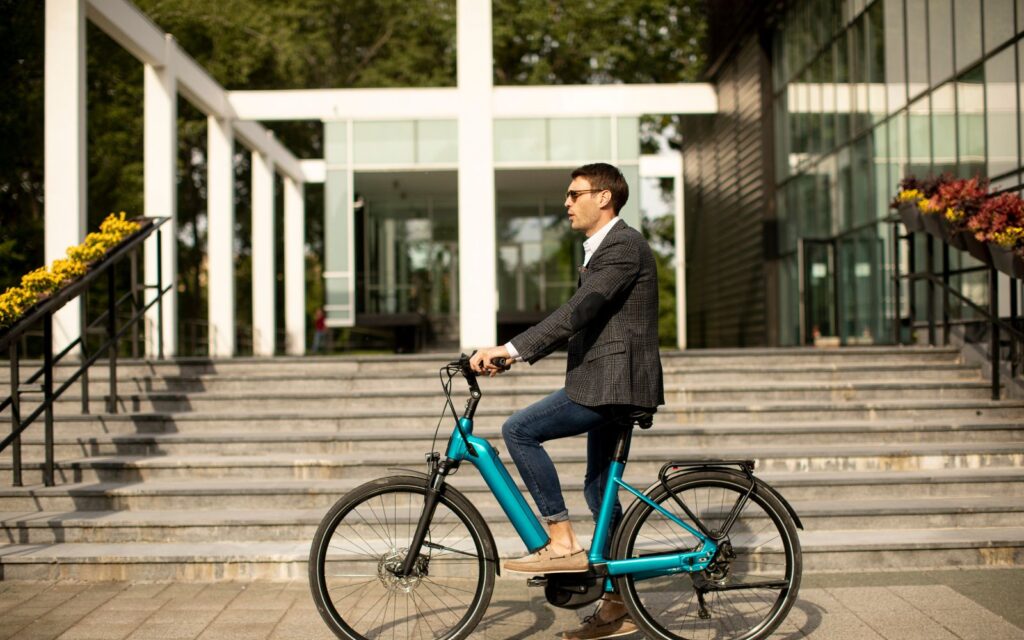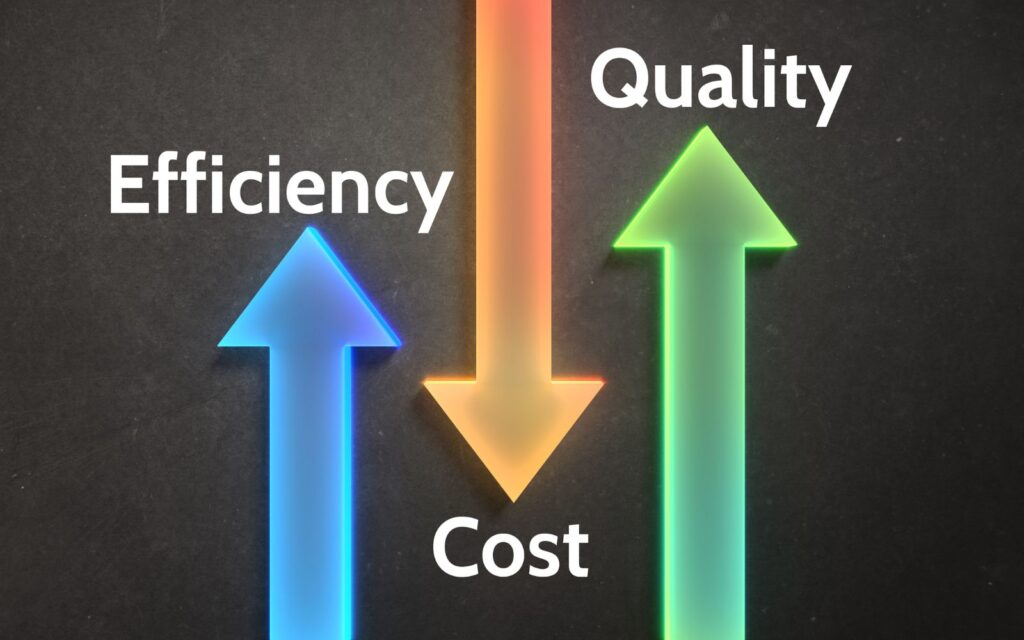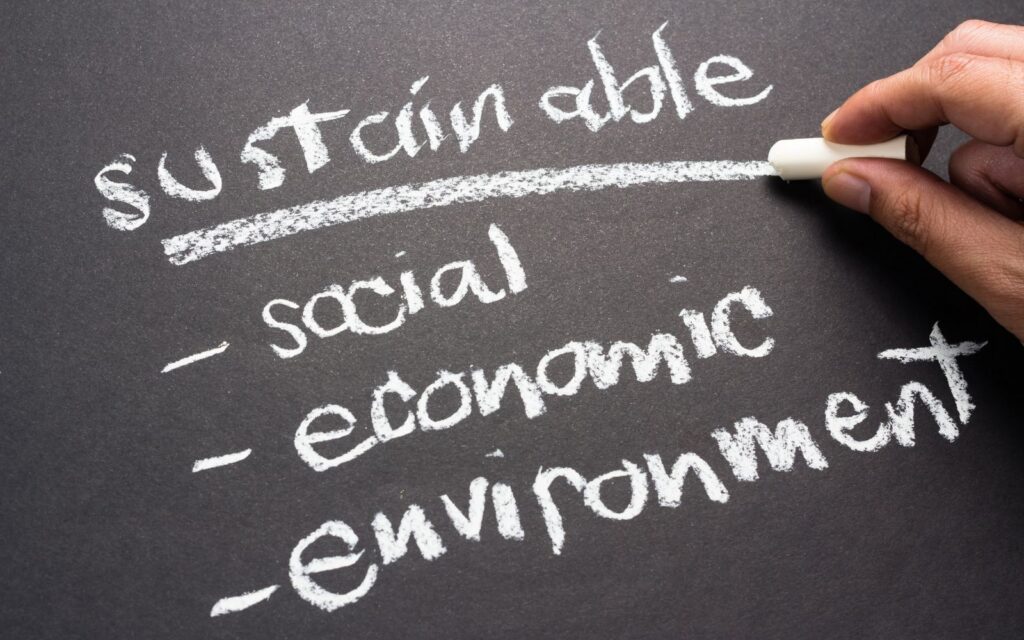13 Eco-Friendly Ways to Stay Active at Work for a Healthier Office

Sitting still all day in office spaces can harm your health and productivity. On top of that, the environmental impacts of traditional work habits can’t be ignored.
By finding eco-friendly ways to stay active at work, you’ll feel better, improve employee engagement, and reduce carbon emissions.
This article will show you how small changes to your routine can support a sustainable future while energizing you during business hours.
Key Takeaways
- Boost employee morale with active, eco-friendly habits.
- Reduce emissions and conserve energy while staying active.
- Incorporate sustainable practices for significant waste reduction and operational cost savings.
13 Eco-Friendly Ways to Stay Active at Work

In today’s fast-paced work environment, staying active often takes a backseat to deadlines and meetings.
However, incorporating physical activity into your workday doesn’t have to harm the environment.
Let’s discuss the best 13 eco-friendly ways to stay active at work, promoting personal health and sustainability.
1. Walk or Bike to Work to Reduce Carbon Footprint

Start your day with an environmentally friendly commute. Walking or biking to work reduces fossil fuel usage, saves money on transportation, and gives you a healthy energy boost.
- Why It’s Eco-Friendly: Fewer cars on the road means lower carbon emissions.
- Pro Tip: Advocate for bike racks at your office to encourage staff to ditch their cars.
2. Take the Stairs and Save Energy

Instead of using elevators, which increase energy usage, choose the stairs. Climbing stairs is great for cardiovascular health and helps reduce a building’s overall energy consumption.
- Bonus: It’s a simple way to conserve energy during power outages or peak business hours.
3. Switch to Standing Desks or Treadmill Desks

Standing or treadmill desks are healthier alternatives to sitting all day. To align with sustainability efforts, opt for recycled or reclaimed wood desks.
- Eco-Friendly Upgrade: Use energy-efficient appliances like LED lighting near your desk to reduce energy usage.
- Team Challenge: Encourage employees to participate actively by sharing step counts or standing hours.
4. Organize Green Walking Meetings

Replace traditional meetings with walking ones. Walking meetings reduce paper waste from printed agendas and promote a greener office culture by reducing air conditioning or other energy-intensive setups.
- Tip: Choose routes near green spaces to inspire creative thinking and enjoy the natural environment.
5. Promote Hydration With Reusable Containers

Encourage staff to use reusable containers for water or coffee instead of single-use plastics. Walking to refill a bottle throughout the day keeps you active and hydrated.
- Sustainable Bonus: Use coffee grounds from your break room as compost for office plants or the local community garden.
- Why It Matters: Reduces plastic waste and promotes energy-efficient office habits.
6. Create a Greener Office With Indoor Plants

Adding indoor plants to office spaces improves air quality and boosts employee morale. You can also set up spaces where employees can stretch or do light yoga during breaks.
- Eco Tip: Use natural lighting to save energy and encourage a positive impact on well-being.
- Pro Tip: Choose low-maintenance plants to reduce water and natural resource use.
7. Incorporate Fitness Challenges and Group Activities

Organize fun activities like fitness challenges, outdoor yoga, or after-work hikes to foster employee engagement and support eco-friendly business practices.
- Eco-Friendly Upgrade: Use green spaces or public parks to avoid unnecessary energy consumption.
- Goal: Motivate your team to work toward a more sustainable future.
8. Reduce Packaging Waste With Sustainable Food Practices

Encourage staff to bring lunches in reusable containers and reduce food waste by donating leftovers to the local community.
Implementing a recycling program and composting food scraps can also be a great addition to your office’s sustainability efforts.
- Tip: Switch to eco-friendly products like compostable utensils and recycled paper napkins.
9. Optimize Energy Use With Smart Solutions

Lower energy consumption using tools like smart thermostats or energy-efficient appliances in break rooms and common areas.
This will reduce costs and make your office more environmentally friendly.
- Upgrade Options: Solar panels or renewable energy certificates can dramatically reduce natural gas and other carbon emissions.
- Team Involvement: Form a green team to lead energy audits and track progress toward energy efficiency goals. Conducting an energy audit can uncover air leaks, improve insulation, and identify opportunities for switching to energy-efficient lighting, all of which contribute to reducing overall energy usage and lowering the carbon footprint.
10. Advocate for Sustainable Business Practices

Encourage staff to support recycling programs, reduce waste, and adopt greener business practices within local communities.
Simple steps like recycling bins, composting food scraps, or turning off unused light bulbs can save energy and resources.
- Long-Term Impact: Sustainable practices give businesses a competitive edge and support future generations.
- Eco Tip: Host workshops on sustainability to teach employees about the benefits of renewable energy and reducing packaging waste.
11. Design a Sustainable Office Space

Creating a sustainable office space is a powerful way to reduce environmental impact and promote eco-friendly business practices. Here are some tips to get started:
- Use Natural Light: Maximize natural light by placing workstations near windows and using mirrors to reflect light. This reduces the need for artificial lighting and boosts employee morale.
- Choose Eco-Friendly Materials: Opt for sustainable, recyclable materials with low VOCs (volatile organic compounds). This will help improve indoor air quality and reduce your office’s carbon footprint.
- Incorporate Plants: Adding indoor plants can significantly improve air quality, reduce stress, and boost productivity. They also add a touch of nature to your workspace.
- Optimize Layout: Design your office layout to reduce energy consumption and promote collaboration. Open spaces with shared resources can minimize the need for additional lighting and heating.
- Use Energy-Efficient Lighting: To reduce energy waste, install LED lighting and innovative lighting systems. These systems can adjust lighting based on occupancy and natural light levels.
By designing a sustainable office space, you can reduce your carbon footprint, enhance indoor air quality, and create a healthier, more productive work environment.
12. Invest in Renewable Energy

Investing in renewable energy is crucial to reducing your environmental impact and promoting sustainable business practices. Here are some options to consider:
- Solar Panels: Install solar panels on your office roof to generate electricity and reduce reliance on fossil fuels. Solar energy is a clean, renewable source that can significantly lower your carbon footprint.
- Wind Energy: Consider investing in wind energy systems to generate electricity. Wind turbines can significantly enhance your renewable energy portfolio and reduce carbon emissions.
- Renewable Energy Certificates: Purchase renewable energy certificates to support renewable energy projects and offset your carbon footprint. These certificates ensure that the energy you use is replenished with renewable sources.
- Energy Storage: Invest in energy storage systems to store excess energy generated by renewable sources. This will help reduce energy waste and ensure a steady clean energy supply.
Investing in renewable energy can reduce your reliance on fossil fuels, lower your carbon footprint, and contribute to a sustainable future.
13. Get Involved in the Local Community

Engaging with the local community is essential for promoting sustainable business practices and reducing environmental impact. Here are some ways to get involved:
- Partner with Local Organizations: Collaborate with local organizations to promote sustainability and reduce waste. Joint initiatives can amplify your impact and foster a sense of community.
- Support Local Businesses: Support local businesses that prioritize sustainable practices. This will reduce environmental impact and strengthen the local economy.
- Host Community Events: Organize community events to raise awareness about sustainability and promote eco-friendly practices. Events like clean-up drives or sustainability workshops can make a significant difference.
- Volunteer: Encourage employees to volunteer for local environmental projects. Volunteering benefits the community and promotes team building and employee engagement.
By getting involved in the local community, you can promote sustainable practices, reduce environmental impact, and build a positive reputation for your business.
Summary
Incorporating eco-friendly ways to stay active at work benefits more than just your health.
By reducing your carbon footprint, saving energy, and implementing sustainable practices, you can create a greener office environment that supports future generations.
Simple actions, like biking to work or using reusable containers, inspire a sustainable business culture that prioritizes well-being and cost savings.
Frequently Asked Questions
How Do Eco-Friendly Work Habits Help Reduce Energy Usage?
Using smart thermostats, natural lighting, and energy-efficient appliances helps conserve energy and lower energy bills. Walking instead of driving also reduces the use of fossil fuels.
What Are Easy Ways to Reduce Packaging Waste at Work?
Encourage reusable containers, compost food scraps, and avoid disposable utensils. Educating employees on recycling programs can also make a huge difference.
How Can Walking Meetings Positively Impact the Office?
Walking meetings reduce energy consumption by avoiding indoor facilities, encouraging movement, and promoting creativity in natural environments.
What Is the Role of a Green Team in Sustainability Efforts?
A green team can lead initiatives to support sustainable business practices, such as energy audits, recycling bin implementation, and energy efficiency tracking.
Why Should Businesses Focus on Eco-Friendly Practices?
Eco-friendly business practices reduce carbon emissions, improve employee morale, and create a more sustainable future, giving companies a competitive edge in the long term.






2 Comments